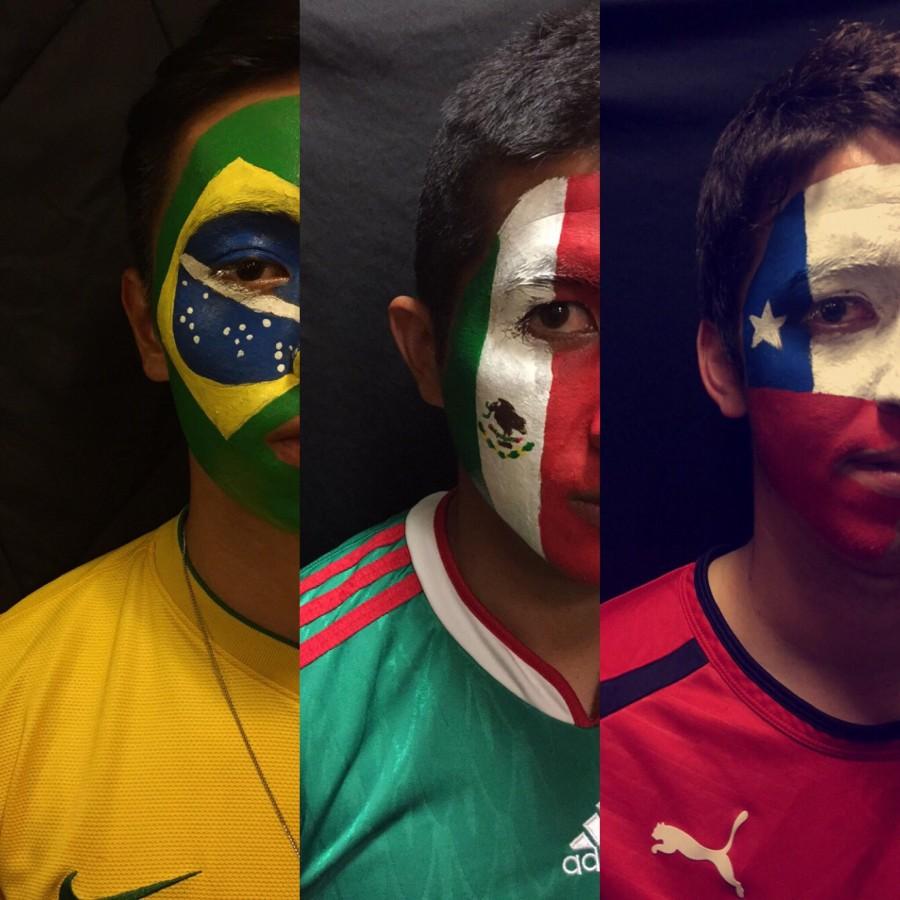Men’s soccer team players celebrate diversity
October 8, 2015
The Lakeland College men’s soccer team is comprised of students from a variety of countries.
“Diversity is an important aspect within our program. It gives our student athletes an opportunity to experience something different and to grow as individuals,” said Head Men’s Soccer Coach Adam Galla. “It also leads to experience that will be valuable after graduation. In the workplace or ‘real world,’ you are going to be in an environment where you are forced to work with people who may be very different from you. Understanding those differences and similarities is extremely important.”
The Mirror sat down with Renan Hiroshi Asato, a junior business administration major from Brazil, Francisco Franco Herrera-Sanchez, a senior international business major from Mexico, and Mirko Andrei Tadic Peters, a senior sports management and leadership major from Chile, to discuss their countries and passion for Lakeland College soccer.
How would you describe your country?
Asato: Brazil is a very warm country weather wise and people wise. In Brazil, we have some of the best culinarians in the world, so we are able to enjoy a lot of different types of food and flavors. Brazil is a mixture of several different nationalities and backgrounds, which I find very amazing and exciting.
I think the biggest difference that United States and Brazil have are the people; Brazilians are open, warm and passionate. Not that we can’t find Americans with those traits, but that was the difference I picked up the most.
Herrera-Sanchez: México is not just tequila, tacos and sombreros; México is a great country full of variety. Cheerful by nature, we have pride in our traditions and our culture. Family is the most important thing in our lives. Mexico City is the cultural, financial and nightlife capital of Mexico. Mexico has it all.
What makes Mexico different from here? Everything. From the weather to the food to all of the activities to do in close proximity.
Peters: The people in Chile are really cheerful. We always greet each other with hugs and a kiss on the cheek. Back home you will never see people staying home on a Friday or Saturday night just relaxing.
I think that Chileans are more confident than Americans are when they first meet people. However, it is important to say that the life style is better in America. Here it is possible get whatever someone wants as long as they work every single day to achieve their goal. In Chile, most people can get their jobs and opportunities because of their contacts and the people they know, not because of their qualities or attributes.
Why did you come to Lakeland to play soccer?
Asato: I was involved with a sports company that recruits players to come play at American universities and colleges, and the soccer coach here at Lakeland contacted this company and everything just kind of went from there. Lakeland College has a great soccer program and this program is getting stronger every year.
Herrera-Sanchez: I came to Lakeland to play soccer because I believe in the program and what it has to offer. During my recruitment showcase, I had the opportunity to talk to many coaches, but it was Coach Adam Galla that made me realize that Lakeland College was perfect for me. During my first season here at school, we won enough games to now hold the winning record in Lakeland’s history, which was very impressive and made me proud of being a part of this soccer family.
Peters: I came to Lakeland College because I was a part of a showcase back home. At the showcase, coaches from all around the world went to watch different soccer players. I had several offers, but I was only really interested in a college in North Carolina. However, in order to go I had it to pass the Toefl, a test that grades your level of English skills. The college from North Carolina wanted a score over 100 points; I only got 82. After two weeks, I received an email from Coach Galla, and I decided to come play at Lakeland College.
What makes American soccer unique?
Asato: Playing collegiate soccer here in the United States is a great experience. There are a few differences between soccer here and back home. I would say the American game is more physical than technical, and there is a lot of running involved as well.
Hererra-Sanchez: Playing soccer here is very different from playing in my country. The fact that some people here do not have the first clue about soccer or do not care about the sport at all is so hard to understand. Soccer is the most important sport in the world and can usually be used as a small-talk topic anywhere we go. Additionally, playing three games a week in America is really hard. There is no time to recover or to get ready for the next game. Back home, we play one game every week. Soccer here is also faster and tougher, and there is no time to think when you have the ball.
Peters: Playing soccer for me in the United States has been a privilege. Of course, the game has the same rules as back home, but the organization at the college level shows more care about everything than back home. We know our schedule before the season even starts. Every year, we receive new equipment. In addition, we do more to improve in our sport than just playing on the field. We watch videos or class lectures to help develop our skills.
My first year in United States, the soccer team was the most important thing to me. I decided to come to America without knowing the language; I wasn’t able to have a normal conversation with anyone. My teammates welcomed me and made me feel comfortable.


